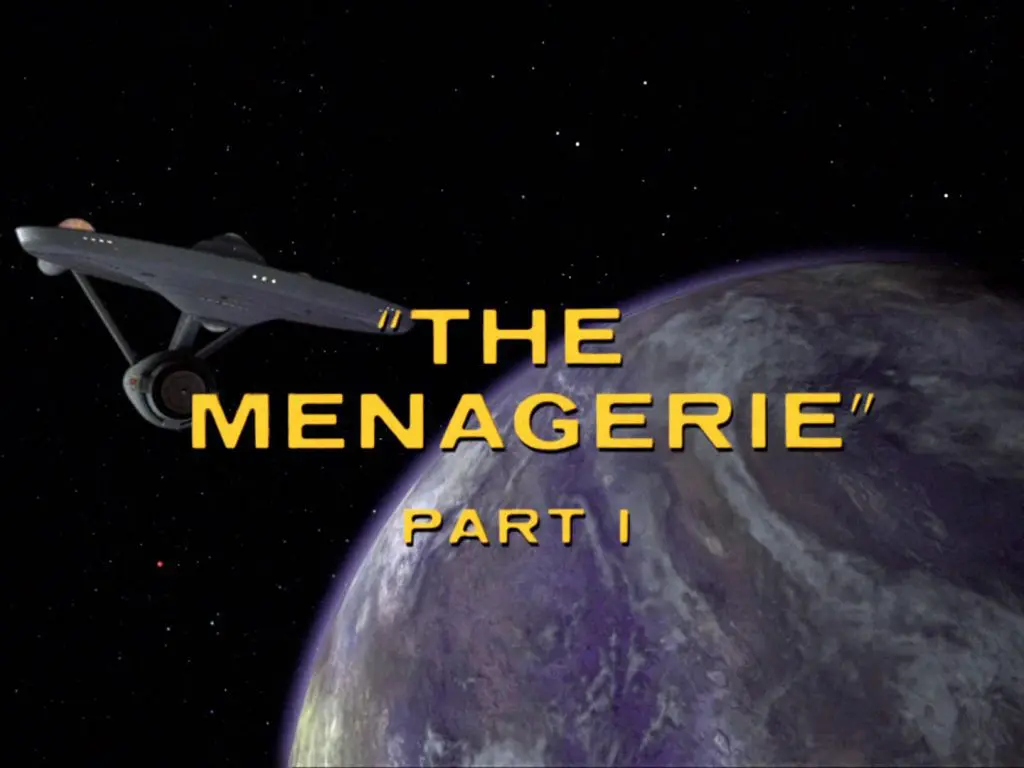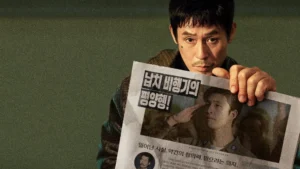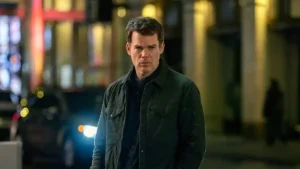For some reason, Spock redirects the Enterprise to Starbase 11. He then commandeers the Enterprise, kidnaps his horribly injured former captain, and takes him to the only planet in the galaxy that Starfleet has utterly forbidden its ships from visiting upon pain of death. Talos IV. This planet is the site of Captain Christopher Pike’s adventure with the Talosians and Vina. This was depicted (though never aired in any form until this point) in Star Trek’s first pilot, “The Cage.“
Because of Spock actions, he must undergo a court-martial. During this court-martial, he plays recorded events from Pike’s journey to Talos IV thirteen years before. This is to convince Captain Kirk and Commodore Mendez (Malachi Throne) that he must continue with his mission to return Pike to that planet.
This is essentially a clip show. However, this differs from many clip shows in other TV series because the clips it depicts have never been shown before. It actually works effectively here. It gives context to the original, unaired pilot, without spending a whole lot of money to try and re-create and film flashback scenes. Like they would have to do otherwise. If you aren’t up for watching “The Cage,” this episode will do just fine. In fact, this is the only way I had seen “The Cage” for many years. Rather than trying to recap the entire thing, because it’s nearly two hours long, I urge you to watch it. Then come back here and read onward.
Let’s Dig Deeper into The Menagerie, Parts 1 & 2
This storyline is particularly interesting. Not only for the light that it sheds on Spock’s backstory but also for its thematic connections to Star Trek: Discovery’s Michael Burnham — Spock’s adopted human sister (Sonequa Martin-Green). She’s the first true mutineer in Starfleet history, having disobeyed Captain Georgiou of the Shenzhou and sparking a war with the Klingons that cost many thousands of lives.
For context (yes, I realize the levels of geekery to which I’m sinking here, but come on, you’re reading this too!), the pilot of Discovery, “The Vulcan Hello,” takes place on May 11, 2256. “The Cage” takes place in 2254. Spock is aboard the Enterprise when Burnham commits her act of mutiny. “The Menagerie” occurs eleven years after “The Cage,” in 2267.
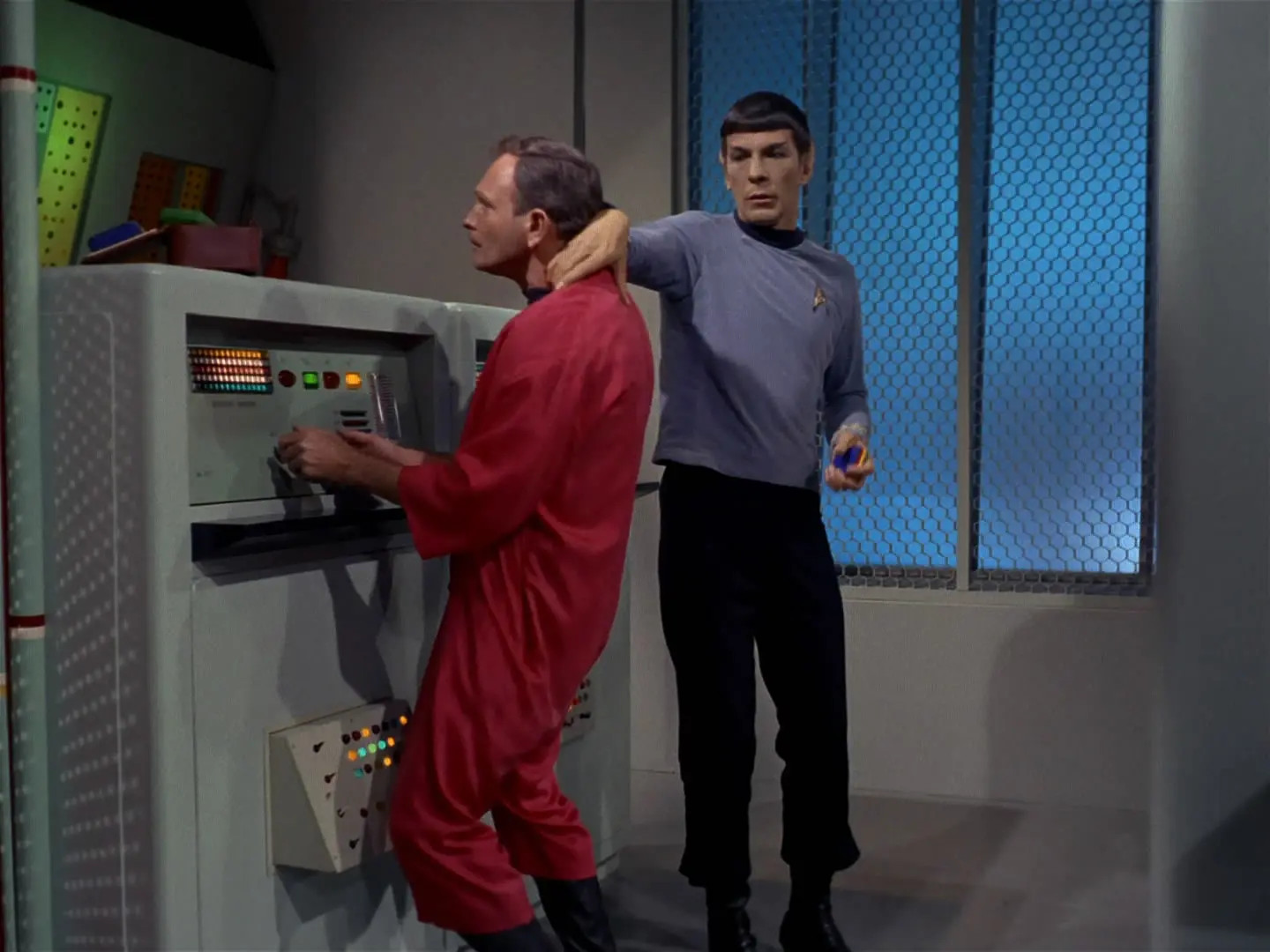
Here, Spock follows in the family tradition of committing mutiny. He raises the bar with kidnapping and taking his former captain to the only planet that gets you the death penalty for going there. Yes, he’s held accountable for this through the court-martial but is ultimately exonerated.
Whereas Burnham‘s court-martial sentences her to life imprisonment. He takes a moment alone with the disabled, mute Fleet Captain Pike, to inform him of his intention to take Pike to Talos IV. Pike regularly tells him, no, using two flashes from his mechanized wheelchair to do so, yet Spock persists. “I have never disobeyed your orders before, Captain, but this time I must (flash, flash), I know. I know it is treachery and it’s mutiny, but I must do this (flash, flash), I have no choice (flash, flash).” Pike is a ranking officer in Starfleet, despite his injuries, “he’s still on the active duty list” because they “didn’t have the heart to retire him.”
Spock willfully and knowingly commits this mutiny against direct orders (not to mention assaulting a fellow officer, defying standing General Order 7, or impersonating Captain Kirk to give orders to the crew, allowing him to steal the Enterprise). And Spock gets off while Burnham is condemned to a penal colony. Fair? I think not.
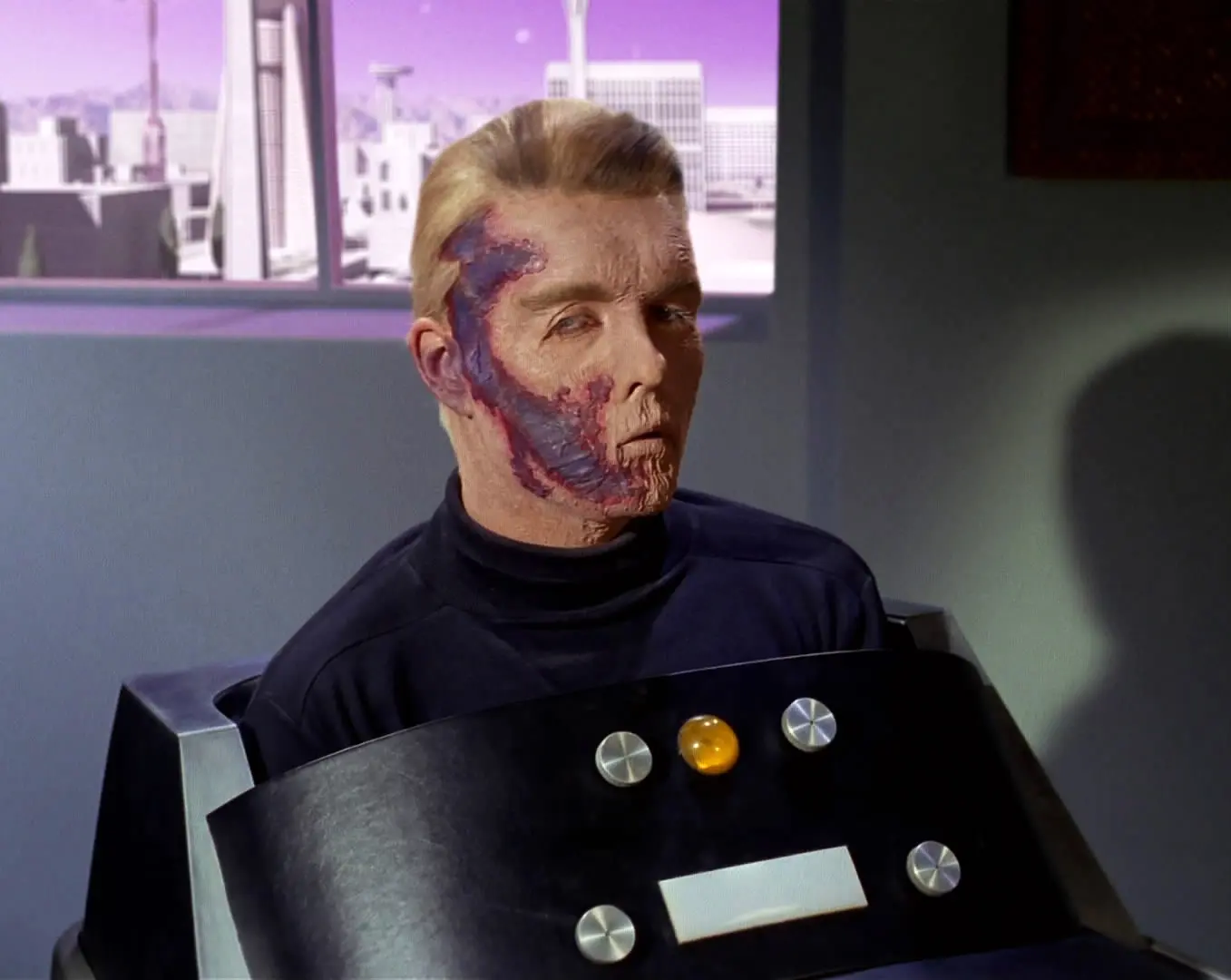
It’s impressive how fervently McCoy defends Spock to Kirk. For all his bluster and show of insulting Spock at every turn. He does implicitly trust him.
KIRK: What I mean is a message was received. It was one of two things. Either someone sent a message diverting us here, or someone on board the ship lied about receiving it. Could that someone be Mister Spock?
MCCOY: Jim, forgetting how well we both know Spock, the simple fact that he’s a Vulcan means he’s incapable of telling a lie.
KIRK: He’s also half human.
MCCOY: And that half is completely submerged. To be caught acting like us or even thinking like us would completely embarrass him.
KIRK: Someone’s interfering with my command and my ship. I don’t know who it is, but I mean to find out. Even you. If I thought you had the technical know-how I’d suspect you, but you don’t. Spock does.
MCCOY: He would not make a false entry.
KIRK: There’s a false entry in the log right now which doesn’t jibe with the established facts. How do you explain that?
MCCOY: I can’t, but to question Spock of all people? Me, yes. I could run off half-cocked given a good reason. So could you, but not Spock. It’s impossible.
The lengths to which Spock goes to cover up his conspiracy are impressive and should give all of his crewmates, especially Captain Kirk and Dr. McCoy, significant pause. It is masterful. He has thought of everything. This is all the more reason to question why Michael Burnham receives so harsh a sentence while Spock gets barely a slap on the wrist. He has manipulated an entire starbase and an entire starship to hand over complete control. He betrays just about everyone whom he calls a friend. Burnham just disobeyed a single order.
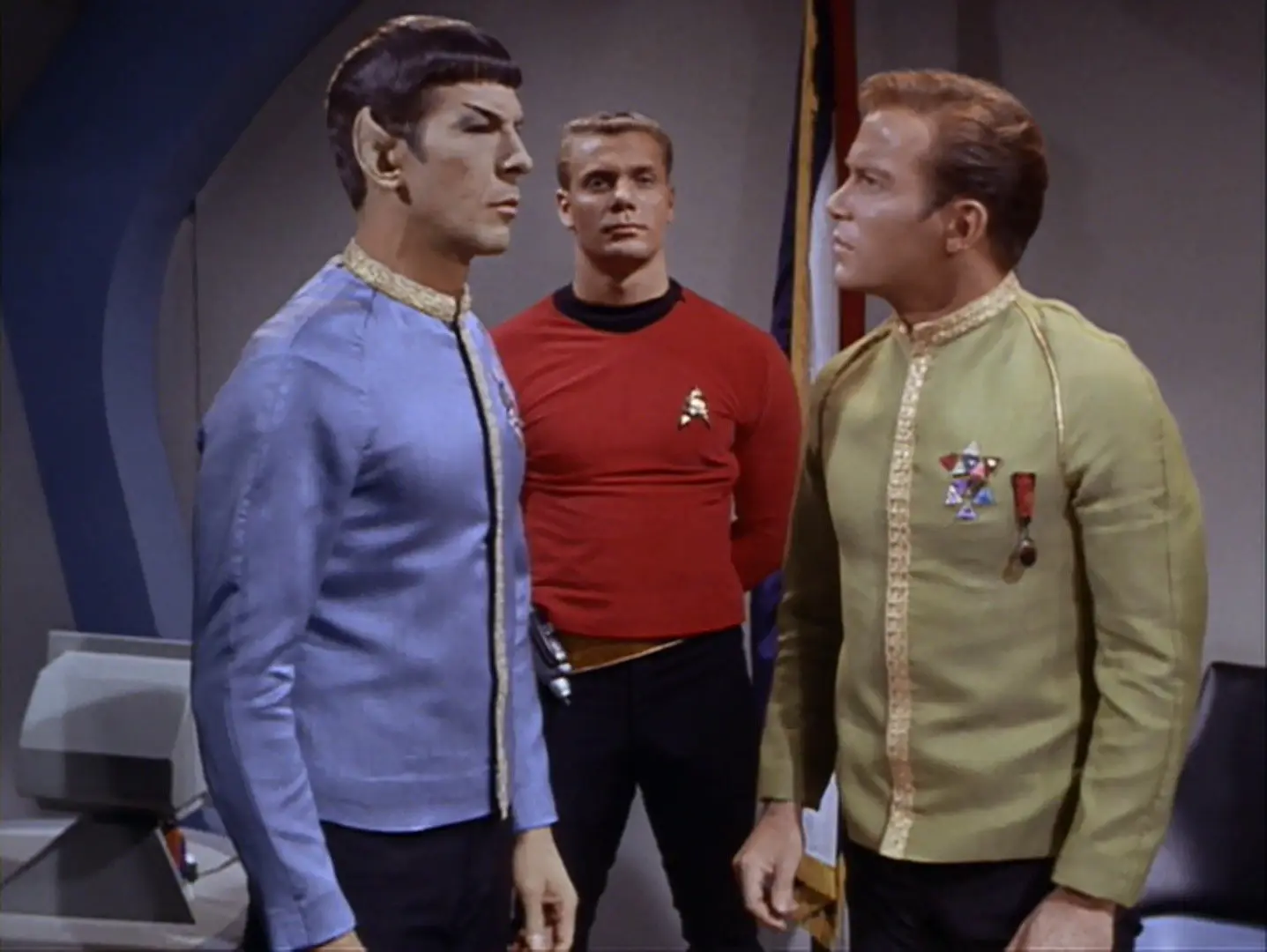
In the end, it’s all OK because the Talosians fabricated the Court Martial to make Kirk not feel as bad for allowing his friend to commandeer his ship. I’m feeling that this is a tad unprofessional, and more than a little convenient. Deus ex Talosian, anyone?
I’ve spent this entire review just recontextualizing this episode in light of Discovery. That’s the beauty (and a bit of the curse) of such a long-running franchise. As it grows and develops, new stories, episodes, and characters make us look differently at what came before.
Random Thoughts on Star Trek
Crewman Piper tells Kirk that a mutual friend, Helen Johanssen, described him to her in such detail that Kirk was immediately recognizable to Piper. I’m going to work on some headcanon here. Helen Johanssen is Helen Noel (whom we haven’t seen since “Dagger of the Mind”), who has left the Enterprise and has gotten happily married. Explaining the change of names. I’d like to see at least one of Kirk’s many conquests have a happy ending…
One thing that dates this episode is Pike’s chair. He’s “totally unable to move…His wheelchair is constructed to respond to his brain waves. Oh, he can turn it, move it forwards, or backward slightly… With the flashing light, he can say yes or no… But that’s it… That’s as much as that poor devil can do. His mind is as active as yours and mine, but it’s trapped inside a useless vegetating body. He’s kept alive mechanically, a battery-driven heart.”
In 1966 this must have been incredibly advanced. Then we look at Dr. Stephen Hawking, who is similarly confined to a wheelchair, and he’s able to deliver lectures and even act. McCoy does a great job, however, of explaining this. “Blast medicine anyway. We’ve learned to tie into every human organ in the body except one. The brain. The brain is what life is all about. Now, that man can think any thought that we can, and love, hope, dream as much as we can, but he can’t reach out, and no one can reach in.” We haven’t yet tapped into the one thing that makes us human, and we can’t control it.
Is Commodore Mendez the only non-evil Admiral (Badmiral, we Trekkies call it) we meet? I suppose it doesn’t matter. He’s just an illusion, anyway.
They do a great job masking the fact that Jeffrey Hunter isn’t playing Pike, making the story work for them, in this case. He’s horribly scarred and disfigured in a heroic accident.
Memorable Quotes
“Captain Pike has an illusion, and you have reality. May you find your way as pleasant.”
– The Keeper, speaking telepathically to Kirk, calling into question our perceptions of reality.

